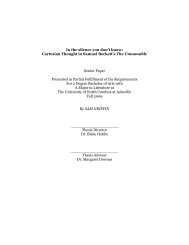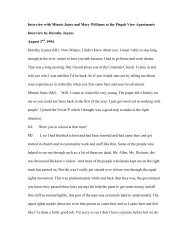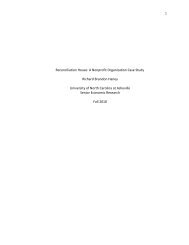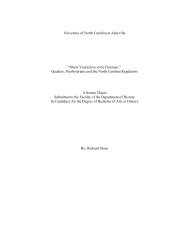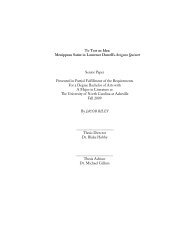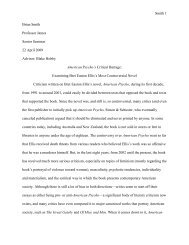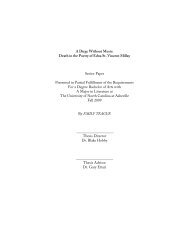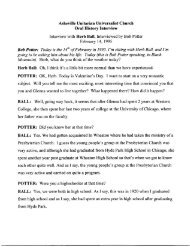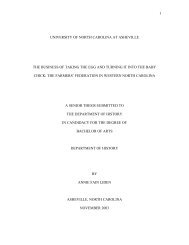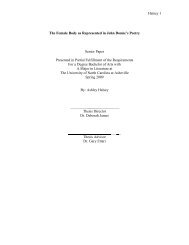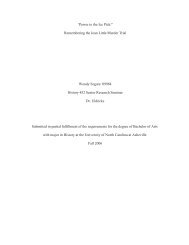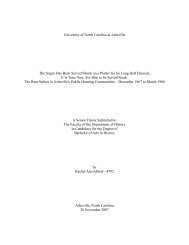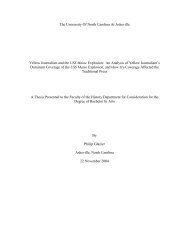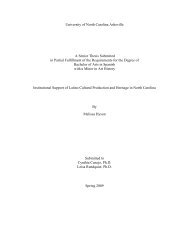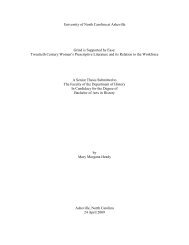Mark Twain's Writing During his Last Twenty Years: The Conflicts of ...
Mark Twain's Writing During his Last Twenty Years: The Conflicts of ...
Mark Twain's Writing During his Last Twenty Years: The Conflicts of ...
Create successful ePaper yourself
Turn your PDF publications into a flip-book with our unique Google optimized e-Paper software.
Arghiere 20<br />
perspective reduces all experience, in the terminology <strong>of</strong> economist E.F. Schumacher, to a series<br />
<strong>of</strong> “convergent problems:”<br />
Convergent problems . . . do not, as such, exist in reality, but are created by a<br />
process <strong>of</strong> abstraction. When they have been solved, the solution can be written<br />
down and passed on to others, who can apply it without needing to reproduce the<br />
mental effort necessary to find it. If t<strong>his</strong> were the case with human relations—in<br />
family life, economics, politics, education, and so forth—well, I am at a loss how<br />
to finish the sentence. <strong>The</strong>re would be no more human relations but only<br />
mechanical reactions; life would be a living death. (Small is Beautiful 102-03)<br />
Although he likely crafted <strong>his</strong> theory in order to abolish <strong>his</strong> sense <strong>of</strong> guilt, Twain’s deterministic<br />
obsessions appear to have either been unsuccessful in dispelling <strong>his</strong> sorrow and sense <strong>of</strong> guilt or,<br />
perhaps due to their reductive implications, to have further embittered him. Twain’s later<br />
notebooks reveal many <strong>of</strong> <strong>his</strong> opinions following <strong>his</strong> construction <strong>of</strong> a deterministic view: he<br />
writes, for instance, that “there is nothing kindly, nothing beneficent, nothing friendly in Nature<br />
toward any creature, except by capricious fits and starts; and that Nature’s attitude toward all life<br />
is pr<strong>of</strong>oundly vicious, treacherous, and malignant” (Waggoner 366), and notes in 1895, as he was<br />
on the verge <strong>of</strong> beginning the Manuscripts, “It is the strangest thing that the world is not full <strong>of</strong><br />
books that sc<strong>of</strong>f at the pitiful world, and the useless universe and violent, contemptible human<br />
race—books that laugh at the whole paltry scheme and deride it” (Tuckey 26). As they were<br />
written following <strong>his</strong> construction <strong>of</strong> a deterministic theory, the bitter opinions in Twain’s later<br />
notebooks seem to have been effected by <strong>his</strong> deterministic obsessions.<br />
If Twain, as a principally realistic and naturalistic thinker, constructed <strong>his</strong> theory <strong>of</strong><br />
determinism as a religion, <strong>of</strong> sorts, to sustain him during a sorrowful period <strong>of</strong> <strong>his</strong> life, then it



